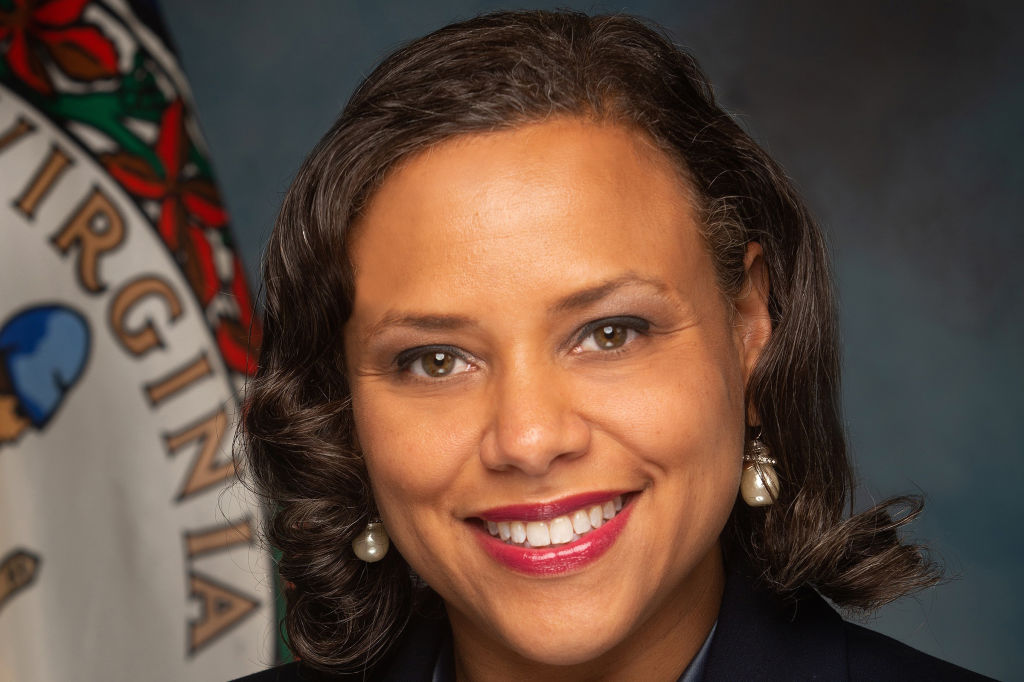Life
 Janice Underwood. Photo courtesy of the Office of the Governor.
Janice Underwood. Photo courtesy of the Office of the Governor.
How Will Virginia Tax Legal Cannabis + Fix Decades of Harmful Drug Policies?
September 21, 2021 @ 10:00am
Janice Underwood knows what it’s like to be on the front lines. In 2019, she was appointed by Governor Ralph Northam as Virginia’s first chief diversity officer to serve in a cabinet-level position. Since then, she’s worked to slowly dismantle the commonwealth’s ingrained history of racial inequity through One Virginia, a new initiative to increase diversity within the ranks of state government.
Most recently, after Virginia became the first Southern state to legalize recreational cannabis, Underwood was tapped to chair the Cannabis Equity Reinvestment Board (CERB), a first-of-a-kind program that will use tax revenue generated by legal weed sales to shore up communities historically harmed by harsh drug policies.
In this exclusive interview, we asked Underwood to break down the mechanics of cannabis reinvestments, whether the CERB’s work is a form of reparations, and how the upcoming gubernatorial race could slow Virginia’s roll toward cannabis equity.
District Fray: How is the CERB preparing for the launch of legal cannabis sales in Virginia?
Janice Underwood: The governor ordered us to begin and end this process with equity in mind. Other states have approached legalizing cannabis sales from the perspective of public health, public safety and agriculture. We want to add an equity perspective by involving the governor’s brand-new office of equity, diversity and inclusion. CERB’s purpose is to directly address the impact of economic disinvestment, violence and the historical overuse of criminal justice responses to certain communities and individuals. We want to set up the board for success once tax revenue from cannabis sales actually starts flowing into the economy.
What happens when tax revenue starts rolling in? How will the CERB redistribute it?
Virginia’s new law dedicates 30% of taxes collected from cannabis businesses to the [CERB]. The CERB is responsible for managing that fund. Right now, we are still at the beginning of that process. As chair of the CERB, my office is setting up the processes and policies that will govern the board. Once those are established, I will provide recommendations to the board to address the impact of economic disinvestment, violence and the overuse of criminal justice responses on communities and individuals.
Can you give me an example of how CERB could reinvest money from its fund?
Right now, there’s no money in the reinvestment fund’s portfolio and we don’t expect to have any until about 2023. The specific institutions and organizations CERB will support are outlined in the Virginia code. For example, CERB will create scholarship programs and educational resources to support people in foster care and those who suffer from substance abuse. We also want to support workforce development programs, mentoring programs, job training, placement services, apprenticeships and reentry services.
What else are you considering for the fund?
Before we can launch a scholarship, for example, the board will need to determine an application process. Also, how will we inform people across the state about the scholarship so they know it exists? What will be the criteria for eligibility? Finally, who will be awarded the scholarship and on what grounds? There will be far more need than money to start with, so these questions are really important.
How will you involve the community in the reinvestment process?
I don’t think we will be successful as a commonwealth if we don’t keep a One Virginia mindset. We welcome community advocates, leaders and policymakers to the open board meetings. We want to build a coalition of allies in this work. But we can’t do it without the community, and we won’t do it without the community. Also, all the minutes and the work we’re doing will be posted on our website after each public reading, so people can track the work of the CERB.
In March, Evanston, Illinois became the first U.S. city to launch a reparations program for Black residents. Do you see CERB’s work as a form of reparations?
For far too long, communities of color and low-wealth communities have been criminalized and unfairly incarcerated because of the sale of marijuana. We are showing a tangible — not theoretical — investment in diversity, equity and inclusion. [Equity principles] will also be good for communities harmed by white supremacy and will help advance real marijuana justice. Let me be clear, though: We have a long way to go and I’m not wearing rose-colored glasses. My concern is getting help to those who need it, as opposed to engaging in a political back-and-forth on whether or not we should use the word reparations.
The Virginia gubernatorial and House of Delegates election is coming up in November. Are you concerned a change in political leadership could work against the CERB?
Virginia elects a different governor every four years, but the legalization of marijuana is actually a bipartisan issue. There are people on both sides who are advancing this work across the nation. I recognize the possibility that adverse sentiments could inhibit the work of CERB, but our mandate is to invest back into the community. I hope whoever the 74th governor is — hopefully Terry McAuliffe — supports our endeavors and other programs that benefit the commonwealth’s constituents.
Many advocates say it’s unfair some Virginians are still serving time in prison for cannabis crimes when the substance is now legal. What are your thoughts?
I agree too many are still serving time in prison, but we have to have realistic expectations for [new] processes to take hold. It’s easy to yell and say we want to do it, but doing the work is hard. I want to make sure our efforts are sustainable. I welcome input from activists, community leaders and legislators on what cannabis justice should look like. Let’s all work toward that goal, as opposed to working in silos and attacking each other. I may be the commonwealth’s chief diversity officer, but in my heart I’m an educator. I’m an activist, and I’m working toward inclusive excellence.
I don’t mean this as a gotcha question, but do you use cannabis?
Cannabis has existed on this planet since the beginning of time, so I don’t know why anyone would view that as a gotcha question. We have been socialized to view cannabis as an illegal substance associated with criminals, which is a complete farce. In the ’80s, there were politicians who criminalized cannabis and intentionally associated it [with] the Black community. My goal is to figure out equitable ways to reinvest cannabis revenue in our Virginia communities, so we can change the harmful narrative that has been perpetuated for generations.
As Virginia’s first chief diversity officer, what do you want to be known for?
I want people to know I’m a servant leader and I believe wholeheartedly in diversity, equity and inclusion. It’s not always easy to operate from a diversity and equity lens inside state government. My background as an educator, activist, mother, daughter and wife — even as a caregiver to my father — gives me a comprehensive view service. It allows me to understand the nexus between diversity and equity and state government, and how to apply that to the cannabis industry. It’s complicated and nuanced work, but we’re rolling up our sleeves and doing it.
Learn more about Underwood and her role as Virginia’s chief diversity officer at governor.virginia.gov/diversity/about-us.
Enjoy this piece? Consider becoming a member for access to our premium digital content. Support local journalism and start your membership today.







